Encanto: Why representation matters
Encanto’s impact on its minority viewers, and commentary about the importance of representation in films.
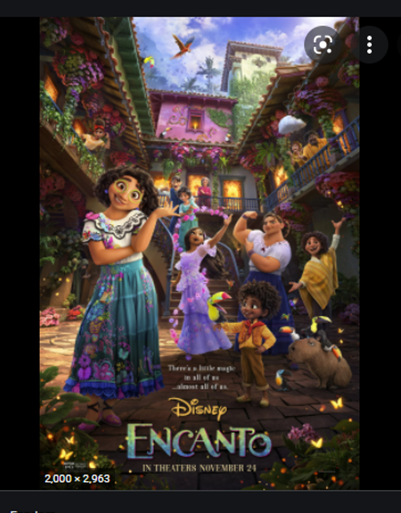
An official poster of the movie “Encanto”
The first time “Encanto” was announced, many individuals were instantly excited. It’s not every day that a Colombian family is portrayed in the media, especially in an animated movie. I was instantly captivated by the teaser trailer as well, the bright colors, the diverse characters, and the interesting plotline made me feel connected to the story without even seeing the movie.
However, not everyone felt the same way. Some argued that the plot of the movie paled in comparison to other Disney movies. Those who like the movie, did so for reasons that took away from the main message of the movie. I am here to voice my opinion about the film, and hopefully start a discussion about why certain aspects of the film have an impact beyond the screen.
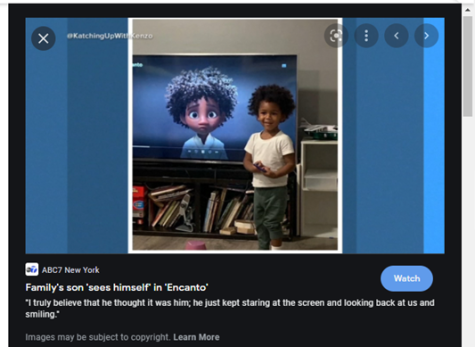
Encanto, which translates to “spell” or “enchantment,” follows Mirabel Madrigal, who was born into a family where everyone gets a magical ability once they reach a certain age.
Well, everyone but her.
The magical gifts are given by the Madrigal’s home, their casita, thanks to a candle that saved Abuela Madrigal and her three children from being killed by an unknown violent group. It provided them and their town with a safe haven away from the violence. When the candle’s magic seems to be having trouble and her whole family and the miracle itself is at risk, it is up to Mirabel to find out what is diminishing the candle’s magic.
What is interesting about the movie is that it appears to start at a point in the story where other Disney movies end. Everything seems to be resolved, everyone lives a happy life without complaints, and the main characters seem to have no conflict left to mend. But this movie is not like the rest. One of the main themes of the movie is generational trauma and how unspoken feelings can carry on and have consequences for future generations.
This is reality for a lot of families, in particular for Latino families as well as other minorities. This is why a lot of immigrant and first-generation kids, from all backgrounds, felt personally connected to the movie. Most immigrant parents have had to make sacrifices for their kids to be here and live the life they were not able to live, but they have not truly been able to process the trauma and toll that immigration took on them.
Abuela Madrigal personifies a lot of these feelings. Not only was she forced to flee her home, but she also watched as her husband was murdered in front of her, while she carried her three babies. The miracle saved her and gave her a second chance at life, but the experience she went through hardened her heart and, as she says in the movie, she “lost sight of who the miracle was for.” This made her hold her family to very high standards. She forgot that they, too, have a breaking point, as we see with the character Luisa in the song “Pressure,” where she talks about how, despite all the pressure she is under, she feels like she cannot look weak since everyone counts on her.
Representation was a big part of why I was looking forward to watch the movie. Ever since moving to the U.S from Venezuela when I was 12, the media I consumed changed. The characters on TV did not look like me, and their experience in many different areas was very different from mine. Yet I did not stop watching the Disney shows and the sitcoms. Instead I spent the subsequent years trying to get my life as close as I could to theirs. It wasn’t until shows or movies like One day at a time or In the Heights that I really saw Hispanic and Latino culture celebrated in mainstream media. This movie was so beautifully animated, and their demonstration of Colombian culture showed a complete commitment on the writers’ and animators’ part to maintaining the movie authentic.
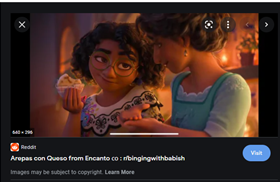
Even the most subtle thing can evoke a whole wave of feelings. This was the first time I have ever heard Arepas, a Venezuelan and Colombian meal, being mentioned in any movie created by an American company. This sort of representation can genuinely affect viewers. It has an impact not only on children but on anyone who has at any point in their life been put down for who they are. There is power in growing up in a world where you see your stories played out in front of you. There’s power in seeing your culture celebrated not only by you, but by people around you as well. I am grateful that Hispanic and Latino culture was shown in the movie, and I wish everyone could have that experience.
When asked about the representation seen in the film, Jamestown High School student and theatre enthusiast Aida Tanglao-Aguas stated, “Filipinos don’t really have representation in Disney movies, we end up having to see ourselves in movies like Coco, Moana, Encanto, and Mulan, even if the stories aren’t about us. I saw my family in Encanto, the family dynamics, the pressure to hold everything together, and the way generational trauma is handled.” Another student, Safaa Taraouat, who goes to Lafayette and saw the movie around January 8th, observed, “I am personally not Latin, but seeing people who looked like me, with curly hair and darker skin, was very meaningful. I think it’s amazing how Disney and other television companies are becoming more diverse when it comes to these characters.”
Another unexpected reaction to the movie was the way individuals within the LGBTQ community decided to headcanon certain characters as LGBTQ+. The term “headcanon”, sometimes abbreviated “hc,” refers to an idea or belief that fans of a piece of media have that is not explicitly supported by the art form. Fostering controversy over the movie, some queer people, especially white queers, tried to take away from the original point of the movie, turning it into something that it is not.
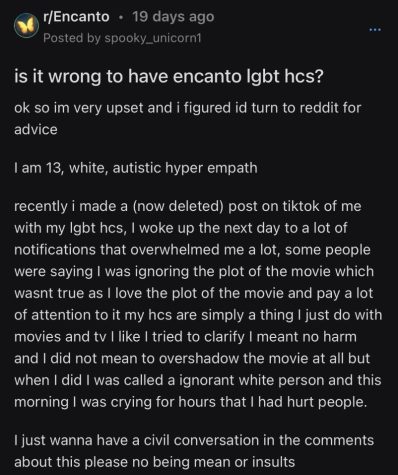
Most of the headcanons seen on platforms such as Instagram or TikTok have been about the main female characters, the most popular ones seem to be Luisa Madrigal being trans, Isabel Madrigal being a lesbian, and Mirabel Madrigal being bisexual. A lot of these headcanons seem to be related to superficial traits such as body type, their abilities, or pattern on their clothing. There is nothing inherently wrong with having headcanons; it’s perfectly understandable to want to feel represented. LGBTQ individuals have also been underrepresented in media for a long time. But that doesn’t mean that it’s okay to hijack a movie and insert yourself in it–especially when people who look like you are not the main focus.
It is important to acknowledge, however, that a lot of hate that fans received for having headcanons was not deserved. The people that tried to draw attention to the issue could have been kinder about it. Hate on the internet can have long-lasting effects on an individual, especially if they are young. An example of this is a post on the website Reddit, where a 13-year-old posted a question after being called out for having headcanons about the movie. The title of the post reads, “Is it wrong to have Encanto LGBTQ hcs”. The Reddit user went on to explain that they were overwhelmed by the number of comments received after posting a TikTok about their headcanons, claiming they got called an “ignorant white person”, which provoked feelings of guilt for unintentionally hurting people.
On a different note, the movie was well-received by movie critics, with a 91% approval rate on Rotten Tomatoes, 7.3/10 on IMDb, and 4/5 on Entertainment Weekly. Encanto also won the “Best animated feature film” at the 79th annual Golden Globes Awards, which were held privately this year. The song from the film called “Dos Oruguitas”, performed by Sebastian Yatra, was nominated for “Best Original Song”, but lost to “No time to die” by Billie Eilish. The movie’s score was nominated for “Best Original Score” as well, but the award was won by Dune’s score, which was Hans Zimmer’s work.
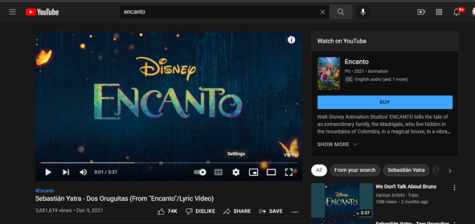
Encanto was released on Disney+ during the holiday season, December 24th. Despite its being considered by many to be a “children’s movie,” its effect and core message touches on universal themes. The movie did an excellent job at showing the diversity of the Latino community, as well illustrating the complexity of family dynamics. It has been praised for representation and inclusion. I believe this marks a before and after in the way animated movies and other media regard representation in their films. I highly encourage everyone to give this movie a watch, and even if you personally do not feel connected to the story, think about what it has done for others.
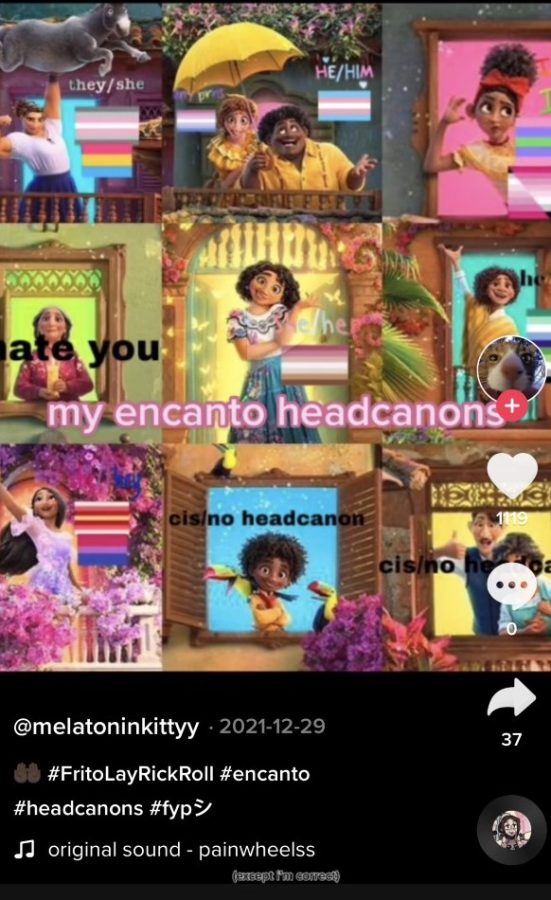
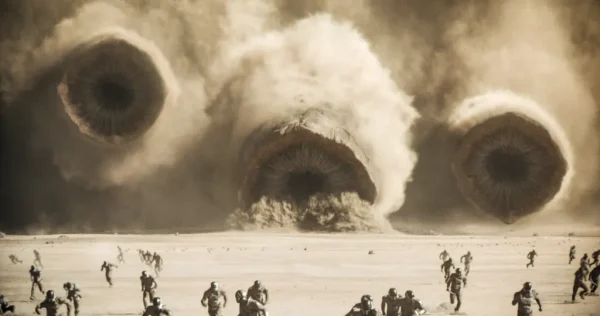
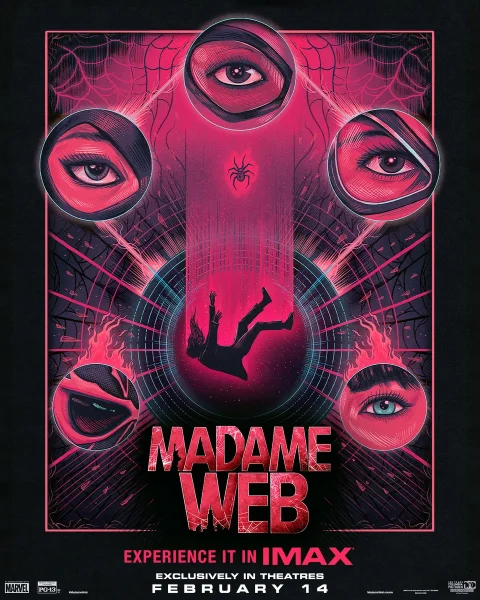




Reinaldo • Feb 5, 2022 at 9:00 PM
I absolutely love this article and I agree as well!!